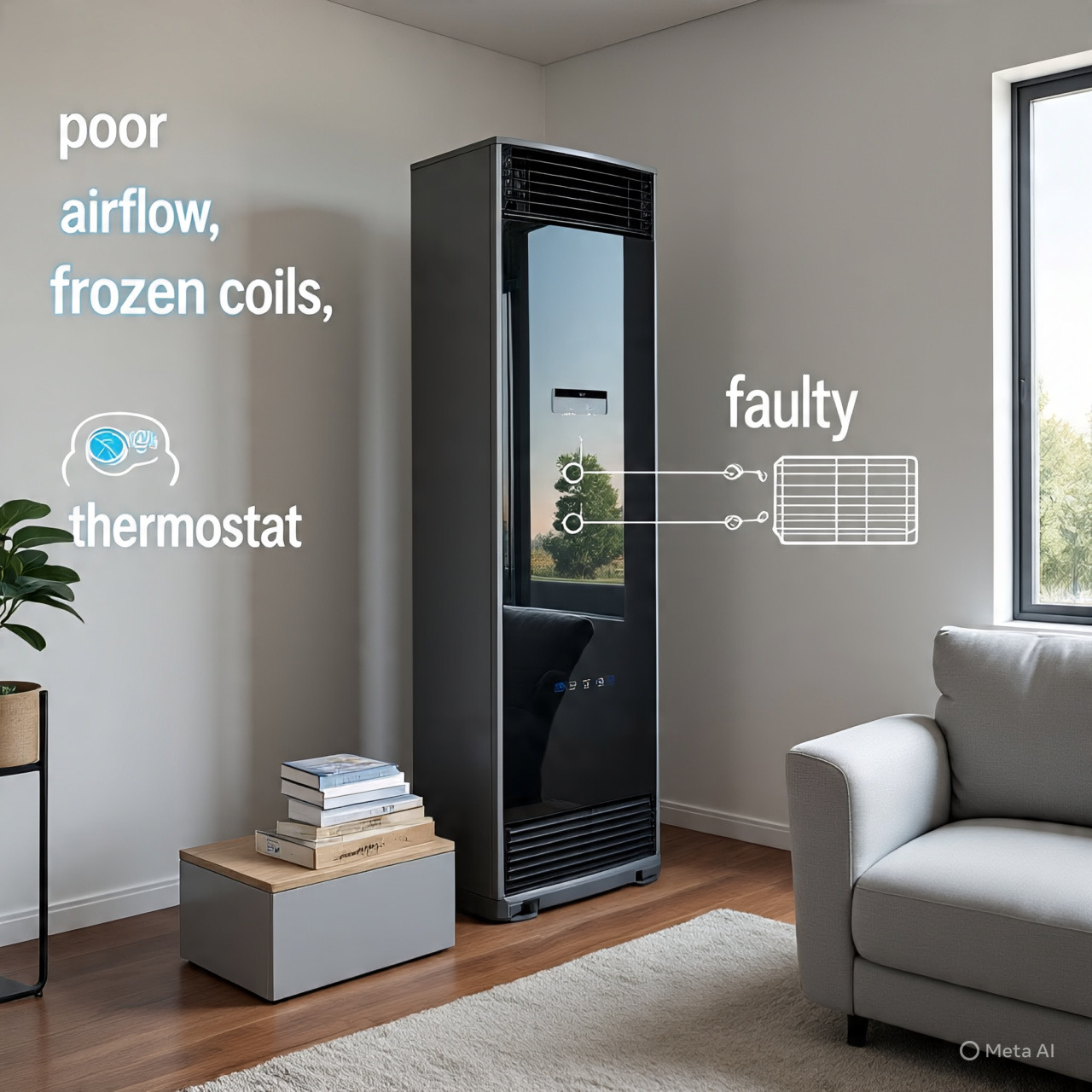Common Air Conditioning Problems and How to Prevent Them
Air conditioning systems are a vital component of modern living, offering comfort during the hottest months of the year. However, like any machine, they are prone to issues that can disrupt their performance and even shorten their lifespan. Many homeowners only notice problems when their system stops working completely, but in reality, most air conditioning issues begin with small warning signs that are often overlooked. Addressing these problems early not only saves money but also ensures comfort and efficiency throughout the season. We will explore the most common air conditioning problems and provide practical steps to prevent them from becoming costly repairs.
Identifying and Preventing Common Air Conditioning Issues
-
Dirty or Clogged Filters
One of the most common problems with air conditioning systems is caused by dirty or clogged air filters. Air filters are designed to trap dust, dirt, and allergens, ensuring clean airflow inside the home. Over time, if not replaced or cleaned regularly, these filters become clogged, restricting airflow. This forces the system to work harder, which reduces efficiency and increases energy costs. A clogged filter can also cause the evaporator coil to freeze, leading to more severe system malfunctions. To prevent this issue, homeowners should check their filters at least once a month during peak usage and replace them as needed. A clean filter not only protects the system but also improves indoor air quality. For more details on maintaining air conditioning efficiency, you can visit https://www.semperfiheatingcooling.com/ac-repair-mesa-az/. Prevention is simple and inexpensive, yet it has a significant impact on the overall lifespan of the air conditioner.
-
Refrigerant Leaks
Refrigerant is the chemical that allows an air conditioning system to cool the air. If a leak develops, the system loses its ability to regulate temperature effectively, causing it to blow warm air instead of cold. Refrigerant leaks can also damage the compressor, one of the most expensive parts of an air conditioning system. Signs of a refrigerant leak include hissing noises, ice buildup on the coils, or noticeably reduced cooling performance. Preventing refrigerant leaks often requires professional inspection, as handling refrigerants involves specific procedures. However, homeowners can reduce risks by scheduling annual maintenance checks to detect small leaks before they escalate. Keeping the system clean and avoiding strain from clogged filters also lowers the chance of leaks, since the system won’t be working beyond its capacity.
-
Electrical and Sensor Issues
Air conditioners rely heavily on electrical components such as capacitors, relays, and wiring to function properly. Over time, wires can become loose, connections may wear out, or sensors that monitor temperature can malfunction. When this happens, the system may fail to turn on, shut off prematurely, or run continuously without maintaining the desired temperature. Electrical issues can also create safety hazards if left unaddressed. To prevent these problems, regular system inspections are crucial. Homeowners should also ensure that their AC unit is not exposed to moisture or pests, as these can damage the wiring. Resetting sensors or adjusting their position can sometimes resolve minor issues, but larger electrical failures should be handled by trained technicians. Preventive measures like protecting outdoor units from extreme weather and ensuring a stable voltage supply help extend the reliability of these critical components.
-
Drainage Problems
An air conditioning system not only cools the air but also removes excess humidity. This moisture is typically drained away through a condensate line. If the line becomes clogged with dirt, algae, or debris, water can back up into the system and even leak into the home. Drainage issues can lead to mold growth, unpleasant odors, and water damage to walls or ceilings. To prevent this, homeowners should inspect the condensate drain periodically and ensure it is clear. Flushing the line with a vinegar solution a few times each season can help keep it free from blockages. It is also important to keep the area around the unit clean and ensure it is level, allowing for proper drainage to occur. Preventing drainage problems is often a matter of simple maintenance, but ignoring them can result in costly repairs and health risks.
-
Frozen Evaporator Coils
When an air conditioner’s evaporator coils freeze, the system loses its ability to absorb heat effectively, resulting in reduced cooling and, in some cases, system shutdown. Frozen coils are usually caused by restricted airflow, low refrigerant levels, or dirty coils. If this issue is not addressed quickly, it can put unnecessary strain on the compressor and lead to major system failures. Homeowners can prevent frozen coils by maintaining clean filters, ensuring vents are unobstructed, and keeping coils clean. Scheduling routine maintenance checks also helps catch low refrigerant levels before they cause freezing. Another important preventive step is to avoid running the system continuously at very low temperatures, as this can contribute to coil freezing. Consistent care of the system’s airflow and refrigerant levels ensures coils operate efficiently and remain free from ice buildup.
Air conditioning systems are essential for maintaining comfort, but they require regular maintenance to function properly. Problems such as clogged filters, refrigerant leaks, electrical malfunctions, drainage issues, frozen coils, thermostat troubles, and skipped maintenance are all common challenges homeowners face. Fortunately, many of these issues can be prevented through regular inspections, timely repairs, and simple maintenance tasks, which ultimately save money and reduce stress in the long run. By staying proactive and addressing small issues early, homeowners can ensure their air conditioning system continues to provide reliable cooling throughout the hottest months. A little effort in prevention today can make all the difference in keeping a system running smoothly tomorrow.

